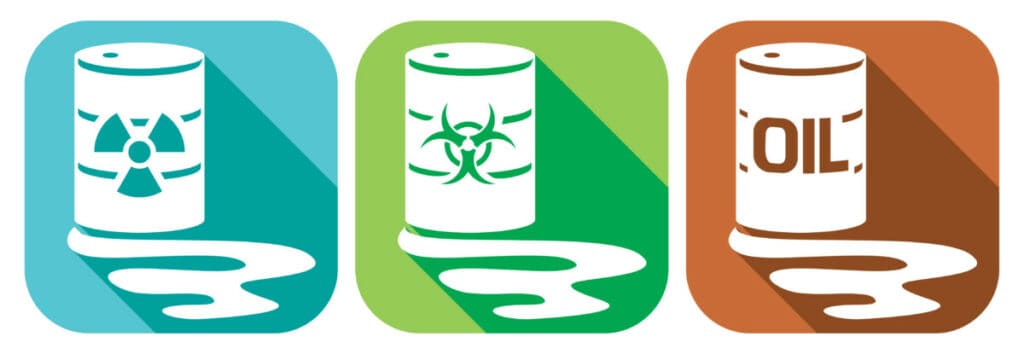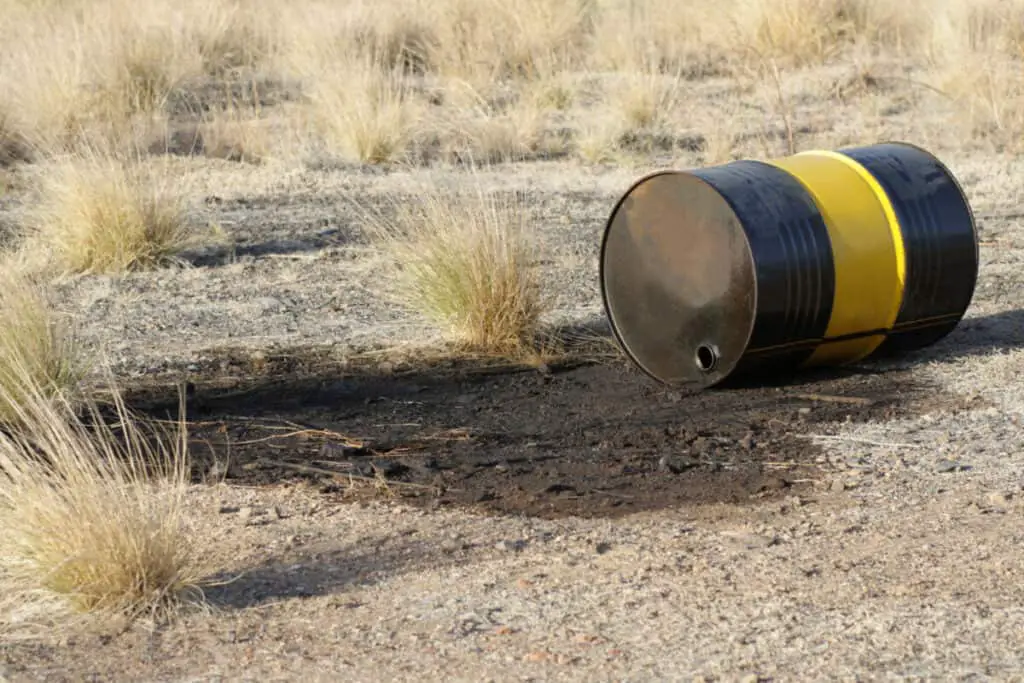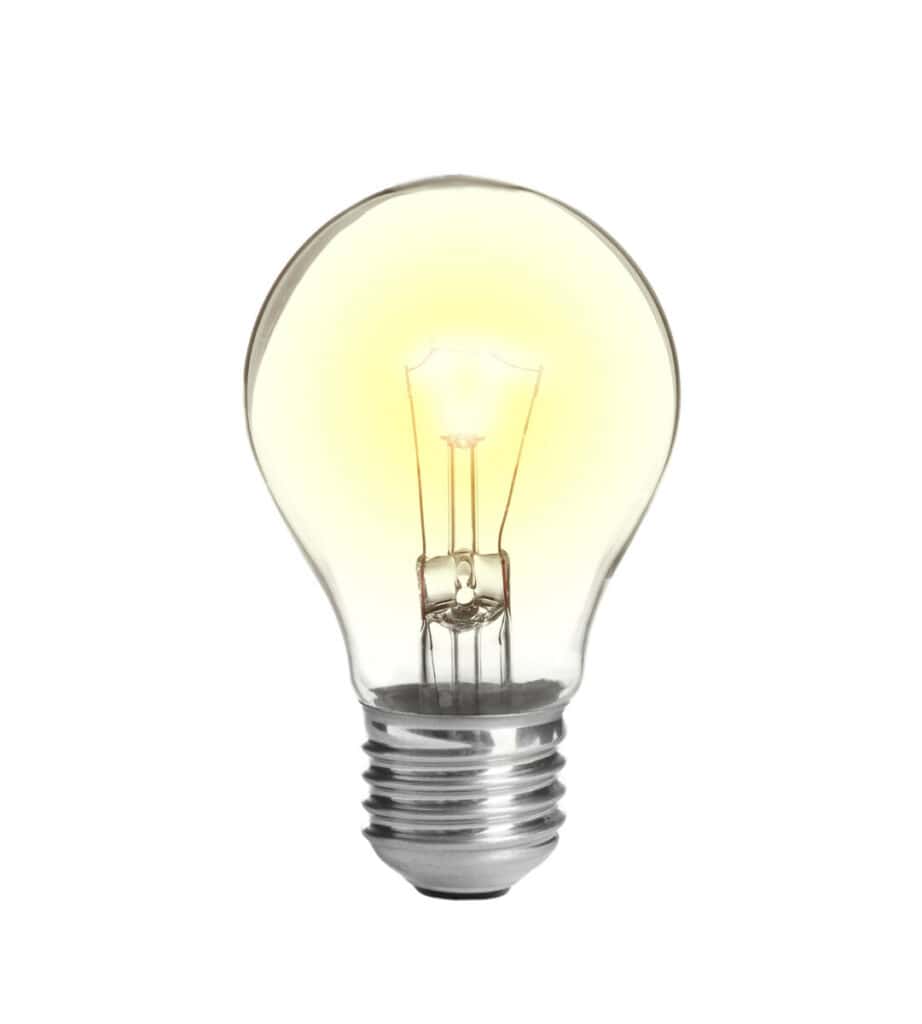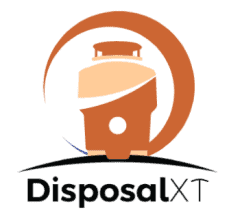
Anti-freeze, batteries, paint, medicines, and more all count as hazardous waste. If they are not recycled or disposed of properly, there is a high risk of a human, animal, or an area of the environment getting damaged. Recycling hazardous waste is the healthiest option, and there are simple ways to do it.
Recycling or disposing of hazardous waste is possible through Civic Amenity sites, Product Exchange Facilities, and other Recycling facilities. The EPA provides lists of types of hazardous materials. Wherever a hazardous material is listed can determine where and how it gets recycled.
Here is a complete guide to how you can recycle your hazardous waste.
Listed Wastes
The Environmental Protection Agency (EPA) has a list of materials that count as hazardous. If you are unsure whether the material is hazardous, search through the list. It can be found here.
EPA has 4 lists which are the “F,” “P,” “K,” and “U” lists. These lists are helpful for large industries that mass produce certain materials and have a large amount of a certain material to recycle. Once the item is found on one of these lists, the EPA provides the guideline for recycling that item.
The “F” list deals with wastes from manufacturing and industrial facilities. Wood preserving wastes spent solving wastes, and more are included on the “F” list.
The “K” list also deals with manufacturing and industrial facilities, but it lists more specific waste products from each. Pesticide manufacturing, iron production, steel production, and secondary lead processing, are each examples of products on the “K” list.
Unused chemicals are in relation to the items used on the “P” and “U” lists. The products must meet certain criteria to be considered as an item on the “P” or “U” lists. (Source.)
Characteristic Wastes
If the material has ignitable, corrosive, reactive, or toxic ingredients, then it is a characteristic waste. For example, thermometers contain mercury which is an explosive material, so a thermometer would be listed as a characteristic waste. Electronics, batteries, pesticides, nail polish remover, and more are also examples of characteristic hazardous wastes.
If these dangerous chemicals and materials are not recycled or disposed of properly, chemicals can be found in drinking water and landfills can be prone to fire hazards. Bottles and other products will usually have instructions on the labeling about how to properly dispose of the product.
Characteristic wastes can be recycled at local recycling facilities.
Universal Wastes
Batteries and pesticides can also be included as universal waste products. Lamps are a universal waste as well. There are companies around the world who will send you boxes or crates to recycle light bulbs and batteries in. PIG is a company based in Pennsylvania that will mail you recycling containers for 20 lamp bulbs. The cost as of May 9th, 2022 is around $119 for the bulb box, and $24 for a 2-gallon battery recycle container. PIG also sells “used battery” labels you may purchase for about $27. There are 25 labels in each package.
Universal wastes and materials can be recycled at Destination facilities. Destination Facilities normally specialize in a certain type of universal waste and will dispose of or recycle them properly. There are also hazardous waste landfills. Special transportation may be required and these facilities have options available.
Household Wastes
Common household hazardous waste products would be Pinesol, Windex, Drain-o, and more. There is a chance that pouring these chemicals down the drain can contaminate water treatment systems and septic tanks. It also causes sanitation problems. (Source) These types of products also emit strong smells that can linger in your home if emptied in large amounts. Like a gas leak, these chemicals could lead to drastic consequences as many of them are considered flammable
Some states have a hazardous waste collection service where you can take your hazardous waste products. There, they will be resold, recycled, or properly disposed of.
There is a website where you can search the recycling facilities in your area.
Paint
Oil-based paints have toxic chemicals that can hinder the health of the environment. They cannot be recycled or disposed of in the trash. In some states, it is even against the law to dispose of oil-based paints in the trash.
Water-based and Latex paints can, however, be recycled. how to recycle these things
Common stores such as Lowes, Home Depot, and Sherwin Williams will often times accept your unused paints. They will resell, recycle, or properly dispose of the paint for you.
Organizations such as Habit For Humanity and PaintCare will accept donated paints. (Source)
Oil
Hundreds of different oils are used for different things. Commonly recycled oils are transmission fluids, brake fluids, car engine oil, electrical oils, hydraulic fluids, and more. (Source)
Heavy oils that can be recycled include car engine oil, Disposing of these oils down the sink, sewer drains, a hole in the ground, and in the normal trash can are all harmful ways to dispose of the oil. There are harsh metals and elements that can hurt animals, people, the earth, and more.

Most types of oils can be taken to a local recycling center. In Madison County Idaho, there is a recycling center that accepts oils and reuses them.
Oils can almost always be re-used. When oil is recycled, it gets re-defined into new oil. It also turns into fuel oils and can be used as raw materials for the petroleum industry. (Source)
Local management authorities or car shops can handle the oil you’d like to recycle. They will also accept oil filters that have been drained.
Batteries
The types of batteries vary widely. There are the small double or triple-A batteries, button cell batteries, car batteries, and more. Batteries contain dangerous chemicals that have the potential to pollute the earth’s water sources and contaminate the soil. Fires can also be started from a hot battery. If not recycled or disposed of properly, damage can be done.
In some states, there are battery recycling requirements in effect. Idaho and Georgia are not requiring this law, but California and North Carolina are. Find your state’s battery recycle law here.
On the Call2recycle website, you can discover where you may recycle batteries and other hazardous products. On their website, you may enter your zip code to find the nearest place that will accept batteries. include the link to the website
When preparing to transport your batteries, place tape on them or store them in a plastic (not-metal) bag or container.
The CleanEarth recycling service has facilities in Ohio, New Mexico, Washington, and more. They handle hazardous and non-hazardous waste, dredge, electronics, and more.
Medicine Bottles
Ibuprofen, Tylenol, and prescription medicine bottles could potentially injure a human or animal if not disposed of properly. It is an eco-friendly choice to recycle these kinds of bottles. If you want to recycle or donate your medicine bottles, you have a lot of options.
Your local pharmacies might have a recycling program. You may consider calling or reaching out to pharmacies such as Walgreens, Rite-Aid, CVS, or Fred Meyer’s to see if they will accept your empty prescription and medicine bottles. Be sure to soak your prescription bottle in hot water and take off the label to avoid sharing personal information. Community Wellness centers may also accept your medicine bottles.

Veterinary centers and animal shelters can reuse medicine bottles for animal medications. Call your local vet or animal shelter to see if they would accept a donation.
Homeless shelters may also accept clean and sanitized medicine bottles and use them for the residing patients.
Lastly, medicine bottles could be used as craft supplies. They are great for storing small decorations, paints, and other art supplies. Consider contacting a community-based art or craft group and ask if they would appreciate your donated medicine bottles. (source)
Aerosol Cans
Lists of hazardous materials can be found on the Environmental Protection Agency (EPA) website.
Objects such as aerosol cans, batteries, and more can be recycled in certain cities. Same with gasses and chemicals.
If the aerosol can is empty and never contained any hazardous product, you can recycle it by putting it in the normal metal recycle bin. 3 examples of hazardous waste materials inside aerosol cans would be pesticides, WD-40, and paint. If the aerosol can still has liquid inside of it then it needs to be taken to a facility to be taken care of professionally. If they are empty, then they can be disposed of inside the normal trash can.
Propane Tanks
If you are recycling a propane tank, make sure it is empty before taking it anywhere to be recycled. Facilities can be picky about propane tanks because it is very hazardous if there is still propane inside. An easier option may be to sell it or reuse it for another purpose. An empty propane tank can be accepted at a recycling center.
Stores that sell propane tanks such as Home Depot may also accept your propane tank.
Most places where you can purchase a propane tank will have information on where you can recycle it. Your local hazardous waste disposal site may take your tank. Your public works department may also have advice on where you could take your propane tank.
Glass
Surprisingly, glass can be considered a hazardous material. If the glass is not disposed of properly, it could work as it would in a magnifying glass frying up an ant. It could start a fire if the right amount of light shines through at the right time.
Thankfully, glass is 100% reusable. It can essentially be recycled over and over again without losing its quality. A materials recovery facility could accept glass and remake it into another glass item.
There are several glass recycling facilities in the United States. You can search for one near you on this website.
Lightbulbs
Some recycling facilities accept lightbulbs but it is not always free. Lightbulbs have small amounts of different recyclable materials such as metal and glass. It is a tedious job to separate and organize the different materials. (Source)
You can purchase light bulb recycling boxes on Amazon. These are great for a bulk of light bulbs that are dead or damaged. They can be transported safely to a recycling plant or a hazardous waste center. The purpose of the box is to keep the glass in one area, enclosed, so as to not subject it to the environment.
If lightbulbs aren’t recycled properly, when thrown into a landfill they could emit toxins that could travel into the groundwater and affect local water sources. This is VERY dangerous as it can pose a lethal threat to humans and animals alike.

Helpful Tips
There are alternative chemicals and products that are better for the environment. There are homemade cleaners that are plant-based that can be safely disposed of outside, in a garbage disposal, or down the drain. You can find helpful tips and hacks on the EPA Safer Choice website. and “Household Hazardous Waste Disposal: A Comprehensive Guide” website.
For questions or assistance, there is a website called Hazardous Waste Haulers (HWH) Environmental. You can find that website here.
This website can also help you find a recycling facility in your area. Most recycling plants that do not accept hazardous waste will know where to send the hazardous waste.
Recycling hazardous waste can be difficult and pricey if you don’t live in an area or state that supports recycling. Even if you aren’t in an area that has access to high-quality and safe recycling programs, it might be a great time to appeal to the city council to get one in place!
Different states have different laws and prices for recycling. Although it may be a time-consuming project to recycle hazardous materials, it will help keep the environment safe and healthy. Once you practice recycling the different hazardous waste products it will become easy. You’ll play a large part in creating a healthier environment. If others see your example and choose to follow it, there will be an even larger impact on the world.
Related Topics:
If you like the article above, here are some other similar articles you should check out!
